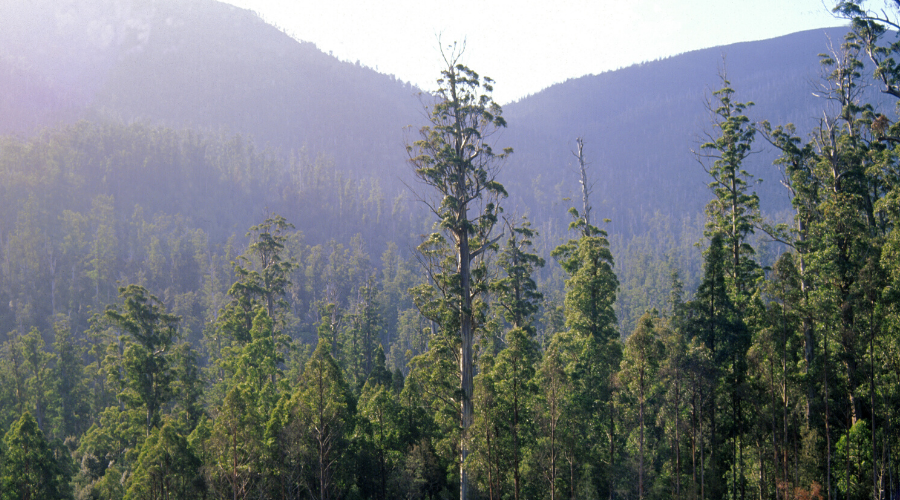Media Releases - 26 June 2020
Tasmania’s Low Net Carbon Emissions Are Because It Logs (A Bit) Less Native Forest

- Logging industry reforms arising from the Tasmanian Forest Agreement explain Tasmania’s low carbon emissions
- The same logging industry reforms were opposed by Premier Gutwein
- Vast scope for Tasmania’s native forest to sequester millions more tonnes of carbon dioxide
- Wilderness Society responds to comments made by Tasmanian Premier Peter Gutwein to the State and Territory Greenhouse Gas inventories released in May
Tasmania’s Liberal State Government trumpets Tasmania’s epically low net carbon emissions, but omits to mention this is only because forestry industry reforms that it opposed mean the State now logs fewer native forests than it used to.
The most recent State and Territory Greenhouse Gas inventories show Tasmania’s net emissions were negative 2.19 megatonnes of carbon dioxide equivalents, 111% lower than 1990 baseline emissions of 20.10 megatonnes.
“The climate 'action' the Gutwein Government claims is that of the Labor-Green government, which began to transition the native forest logging industry out of Tasmania’s native forests," says the Wilderness Society's Tom Allen. "We are seeing the climate benefits now, while the Gutwein Government continues to log the most powerful climate solutions we have.
“About 10 years ago, the Tasmanian Forest Agreement (TFA) more than halved the logging quota of state-owned logging agency Sustainable Timber Tasmania so that many more unlogged native forests have been left to do what they can better than anything else: cheaply, safely and securely sequester carbon dioxide.
“It’s great Tasmania’s ‘Premier for Climate Change’, Peter Gutwein, celebrates this outcome, but he should credit the role of Tasmania’s unlogged forests in achieving it. Perhaps he didn’t because he opposed the TFA reforms and tore-up that Agreement—some of the outcomes of which he now ironically welcomes.
“‘The Premier for Climate Change’ could show he’s real on climate by completing these logging industry reforms and finally transition the uncommercial native forest logging industry out of native forests so that Tasmania becomes a proud 100% plantation forestry state.
“Even better, if he does this before 2030, he’ll beat Victoria, and reap the first-mover advantage that comes from investors and wood buyers knowing that all wood coming from Tasmania is forest-destruction-free.
“When logging ends in Tasmania’s native forests, our precious Gondwanan forests can finally be left in peace to do the heavy lifting of carbon sequestration and species protection, and help offset millions more tonnes of carbon dioxide. The Gutwein Government would then be in a position to say that it took climate action instead of claiming the credit of others,” says Mr Allen.
For comment: Tom Allen, 0434 614 323